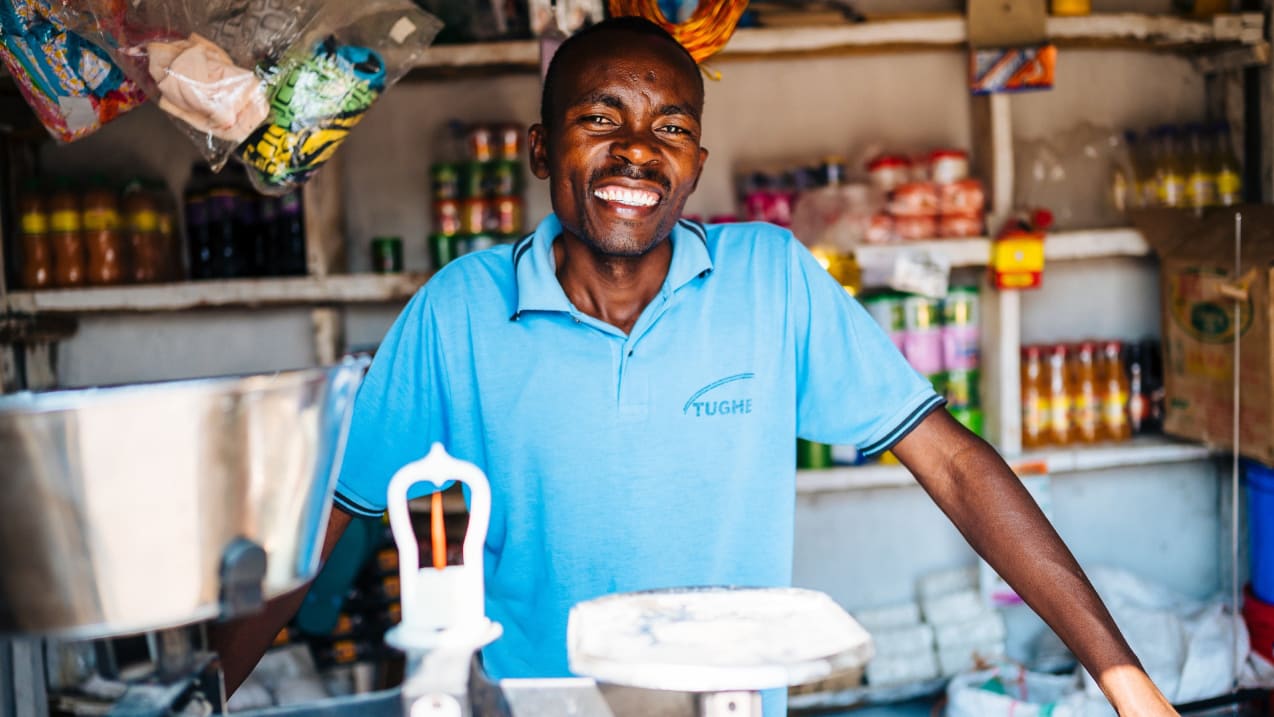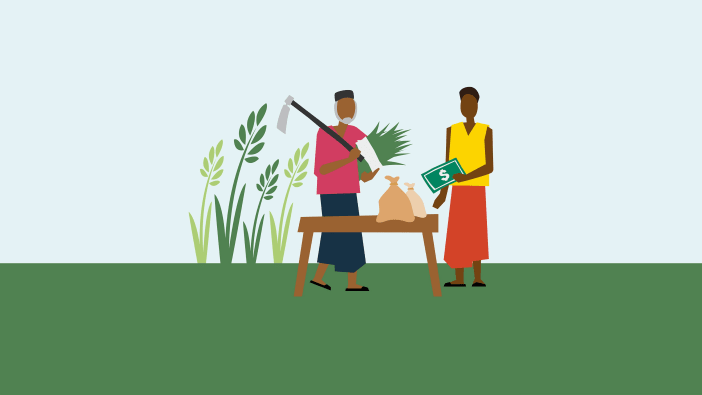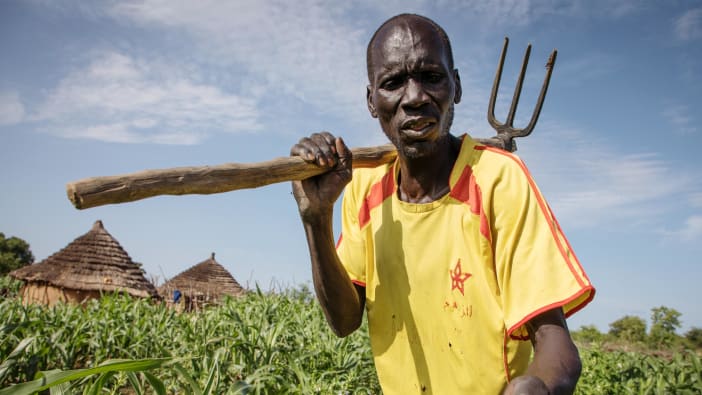Self-help groups
A key component of Tearfund’s resilient livelihoods approach involves establishing and supporting self-help groups (SHGs). These enable SHG members to access small low-interest loans to set up or extend micro-enterprises.
Tearfund’s SHG model is built on the belief that people living in poverty can be agents of change rather than merely recipients of aid. Our SHGs promote economic, social and political empowerment, and have a focus on personal development, relationship-building, collective problem-solving, collective action, self-reliance and self-learning. Group members are encouraged to become drivers of change in their own lives and in their communities. Mutually supportive relationships are key; members often view the groups as sanctuaries where they can discuss their problems and build trusting relationships that support them through personal crises.
The SHGs have 15 to 20 members, and are intentionally targeted at the poorest sectors of the community. Many groups are women-only. Members save a small amount each week. Saving regularly enables them to build group capital to allow them to take out small low-interest loans for education and healthcare costs, urgent consumption needs and, ultimately, for establishing or extending micro-enterprises. The groups are self-governing but facilitation-intensive, and are financed entirely by members’ savings.
Tearfund has been working with SHGs since the first programme was started in Ethiopia in 2002. Tearfund now supports tens of thousands of SHGs in sub-Saharan Africa and is scaling up the approach across Asia and Latin America. The SHG model delivers very high returns and is demonstrating transformational change of people’s lives. We are continually building evidence of the impact of our SHG programming.
Tearfund believes that SHGs are most effective for addressing poverty reduction when they are combined with training and advisory services in disaster risk reduction, adaptive and diversified agriculture, business development, health and sanitation, advocacy, literacy and other skills. The ‘SHG plus’ additional activities and support maximises the potential of SHGs for livelihood resilience and poverty reduction.
Tearfund is also exploring how the SHG approach can be integrated into a church and community mobilisation process to empower local churches and community members to transform their communities.
Discover our resources for use with self-help groups
Read our research on self-help groups
Women’s economic empowerment
Women make enormous contributions to the income of their families; however, they are disproportionately affected by poverty, discrimination and exploitation and often have less access to assets, control over income and involvement in decision-making. Tearfund is working to better enable men and women to work together as equally valued partners so that individuals, families and communities can flourish.
We know that women’s economic empowerment is beneficial to women, to their families, their communities and to national economies. Globally, however, women are paid less than men and have more limited access to land and resources than men. Household finances are often controlled by men rather than shared jointly between partners. Women (and girls) also carry out the bulk of unpaid household work leaving less time for them to engage in income generation to support their own and their family’s needs.
A lack of financial independence can also leave women in dangerous and violent relationships. Moreover, when addressing women’s economic empowerment it needs to be considered that existing gender roles and norms will be disrupted, and that this has the potential to generate more violence towards women. As a result, we need to work with the whole community at the same time, to create a favourable environment and understanding around the benefits for everyone.
Explore our resources on women’s economic empowerment
Cash and voucher assistance
In cash and voucher assistance programmes, cash transfers or vouchers for goods or services are directly provided to recipients.
There is no longer any serious dispute about whether cash can significantly improve humanitarian aid. Established humanitarian actors now invest in cash at greater scale and more consistently than ever before. It is at the forefront of innovation for people in crisis (The State of World's Cash report).
Cash is increasingly becoming mandatory in many aspects of humanitarian response. The question has changed from, ‘Can we use cash?’ to ‘Why isn’t cash being used?’
Tearfund uses cash and voucher assistance as its preferred way of responding to humanitarian crises and to complement livelihood activities in countries where it operates directly and where it has a presence through partners. In line with the CaLP Global Framework for Action and the Grand Bargain, Tearfund's standard practice is to build sufficient capacity, and to invest in supporting national and local organisations to build leadership and capacity.
Tailored to each context, Tearfund's cash and voucher assistance activities are a combination of multipurpose cash transfers, sector-specific cash transfers, and vouchers and grants for livelihood start-up activities. To facilitate the implementation of cash and voucher assistance activities, Tearfund and its partners are piloting and using different technologies such as mobile money, smart cards and blockchain.
Read our research on cash and voucher assistance






